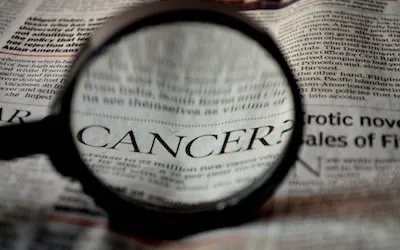Studies Reveal Which Supplements May Cause Cancer
Updated | 2020-08-17
Reviewed by the NatureClaim Team

Because dietary supplements are natural, they are perceived as safe. In reality, little is known about the safety of most dietary supplements. To address this lack of information, some organizations have begun to investigate whether or not popular supplements may be toxic.
The role of the U.S. Department of Health and Human Services' National Toxicology Program (NTP) is to generate, interpret, and share toxicological information about potentially hazardous substances in the environment such as cancer-causing agents.
About 38% of people will be diagnosed with cancer at some point in their lifetime. This is a complicated disease that takes a toll on the emotional and mental well-being of not only the patients but also their relatives. According to NTP, the long-term (2 year) use of some botanicals and herbal supplements have been shown to cause cancer.
Due to ethical concerns, toxicology studies cannot be performed in humans; therefore, the researchers at NTP tested a variety of supplements in rats and mice. Male and female animals were tested to account for gender-specific differences. The results are concerning, and it is crucial that the public is aware of these findings.
The long-term use of aloe, ginkgo, goldenseal, and kava kava supplements have the potential to cause cancer (see table below). The herbs with no evidence of causing cancer in both rats and mice were ginseng, green tea, and milk thistle. Ongoing toxicology studies at NTP include black cohosh, dong quai, Echinacea, Garcinia Cambogia, Usnea lichen, and valerian. Once NTP publishes their findings on these herbs, we will expand the table.
Long-term (2 year) use of herbal supplements studied at NTP and their potential to cause cancer in rats and mice.
| Herbs | Male Rats | Female Rats | Male Mice | Female Mice |
|---|---|---|---|---|
| Aloe | Yes | Yes | No | No |
| Ginkgo | Some | Some | Yes | Yes |
| Ginseng | No | No | No | No |
| Goldenseal | Yes | Yes | Some | No |
| Green Tea | No | No | No | No |
| Kava Kava | Equivocal | No | Yes | Yes |
| Milk Thistle | No | No | No | No |
National Toxicology Program's Cancer Evaluation Criteria:
Yes/Clear Evidence of Carcinogenic Activity is demonstrated by studies that are interpreted as showing a dose-related (i) increase of malignant neoplasms, (ii) increase of a combination of malignant and benign neoplasms, or (iii) marked increase of benign neoplasms if there is an indication from this or other studies of the ability of such tumors to progress to malignancy.
Some Evidence of Carcinogenic Activity is demonstrated by studies that are interpreted as showing a chemical-related increased incidence of neoplasms (malignant, benign, or combined) in which the strength of the response is less than that required for clear evidence.
Equivocal Evidence of Carcinogenic Activity is demonstrated by studies that are interpreted as showing a marginal increase of neoplasms that may be chemically related.
No Evidence of Carcinogenic Activity is demonstrated by studies that are interpreted as showing no chemical-related increases in malignant or benign neoplasms.
Reference(s):
National Cancer Institute. Cancer Statistics. Accessed: August 2020 from https://www.cancer.gov/.
"Supplements May Cause Cancer" was written by Korey Brownstein, Ph.D.
